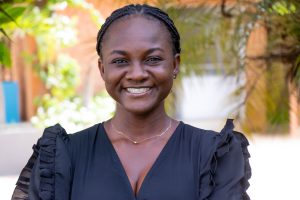Over 200 nations attended the 28th Conference of the Parties (COP) to the United Nations Framework Convention of Climate Change from November 30th – December 12th in Dubai, UAE. For the first time, health, food, and agriculture were addressed in relation to the climate crisis. The Declaration on Climate and Health along with COP’s first ever “health day” attended by 49 health ministers along with senior representatives fromover 100 nations marked a recognition of the harmful impacts of climate change on health and well-being. COP 28 ended last week with a deal calling for a transition away from fossil fuels as well as an aggregated commitment of $1 billion USD from the Green Climate Fund, the Asian Development Bank, The Global Fund, and the Rockefeller Foundation in financing for climate and health.
Was it a failure of COP 28 to not call for a full phase-out of fossil fuels? Did the proceedings fully address the urgency of climate change? Our experts, who were on the ground at COP 28, give us their takes and analyses below:
Moving beyond “healthwashed’ negotiations

“COP28 started with health professionals celebrating the first health day in COP history, hundreds of health ministers committing to climate-smart health systems, and funders launching a billion dollar climate and health fund, among others. But as the conference proceeded, we began to realize more and more that we have been used to ‘healthwash’ the negotiations, an ornament for a seemingly ambitious but surely ambiguous outcome document. Nevertheless, we must continue doing what we need to do within our sector while we loudly articulate the health arguments for global climate action. Moving forward, we must view COPs as serious negotiations not only about the sustainability of our planet but fundamentally about the health and survival of all people. Therefore, we need a new, bolder, proactive strategy – we must go beyond our usual side events where we talk to one another and instead be in the main arena of messy climate negotiations.”
Renzo Guinto is a 2016 New Voices Fellow and Associate Professor of Global Public Health and Inaugural Director of the Planetary and Global Health Program, St. Luke’s Medical Center College of Medicine.
Climate crisis is a health crisis

“There were many firsts in COP28. What excites me most is the launch of the Climate and Health declaration merging two very interconnected disciplines. This is what we have been fighting for. The climate crisis is a health crisis and we must act with much urgency. It’s not just increased temperatures, it’s the loss of lives and livelihoods, often suffered by the marginalized and vulnerable communities. “
Renard Siew is a 2021 New Voices Fellow and a Climate Change advisor to the Center for Governance and Political Studies in Malaysia.
Food systems and Youth Engagement in climate action

“In the first week of COP 28, over 140 countries committed to accelerate action on sustainable agriculture, resilient food systems, and climate action. Notably, plant-based food courts and initiatives were introduced. This marks a crucial shift in recognizing the urgency for agriculture and food systems to adapt and transform in response to the climate crisis. Furthermore, global goals were to be set to triple renewables and double energy efficiency and for the first time in COP’s history, there is language addressing fossil fuels.
While the focus on food systems and agriculture at COP28 reflects a significant moment in addressing climate challenges and achieving sustainability goals, the Global Stocktake lacked language on food systems which is a big disappointment given its pivotal role in achieving the 1.5°C target. Additionally, the proceedings did not fully address the urgency of climate change, especially witnessing its impact on Africa. People are suffering, and the need for swift action, such as a phase-out of fossil fuels, cannot be overstated. Scientific evidence supports this as a key measure to address climate change.
As young advocates, we bear the weight of today and tomorrow’s challenges. Our aspirations for a better world are not too much; we seek actions matching the severity of the global crisis. The urgency cannot be overstated. All we ask for is a better world. I still have hope that one day we will see the light at the end of the tunnel.”
Gloria Agyare is a 2023 Impact West Africa Fellow and a sustainable food systems advocate as well as a Program Officer for the Ghana Youth Environmental Movement.
